Israel And The West Set The Stage For Next Round Of Warfare On Iran
Via Brian McGlinchey at Stark Realities
Peace-loving people throughout the world breathed a sigh of relief when the Israeli-American war on Iran ended in June after 12 days, with President Trump racing to triumphantly declare US strikes had “obliterated” Iran’s nuclear program.
While his rhetoric suggested he wanted Israel and the world to view the US bombing as a lasting resolution of accusations that Iran was pursuing nuclear weapons, Israel and its Western collaborators are already setting the stage for new aggression against Iran. Israeli strikes could be just days or weeks away, with Netanyahu hoping that, this time, the United States will be drawn into yet another protracted, bloody regime-change campaign to further the Israeli agenda.
On Thursday, France, Germany and the United Kingdom notified the UN Security Council that they were starting the process to reimpose UN sanctions on Iran via “snapback” provisions of the 2015 nuclear deal. Under that agreement — the Joint Comprehensive Plan of Action (JCPOA) — Iran agreed to many additional safeguards to ensure its nuclear program remains peaceful. For example, Iran eliminated its inventory of medium-enriched uranium, cut its low-enriched uranium by 98%, capped future enrichment at 3.67%, and rendered its heavy-water reactor inoperable by filling it with concrete. In exchange, Iran was granted sanctions relief.
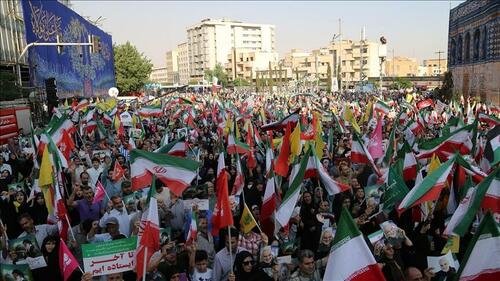
Despite Iran’s compliance with the JCPOA, President Trump spontaneously withdrew the United States from the deal in 2018 and reimposed US sanctions that his administration called “the toughest sanctions ever imposed” on Iran. Victimized by a new round of Israel-encouraged US economic warfare, and lacking any other leverage to nudge the United States back into the deal, Iran began enriching uranium well above the levels allowed under the JCPOA.
Parroting Israel, Trump has insisted that Iran must cease all nuclear enrichment, something Tehran has categorically ruled out for years, asserting that it’s Iran’s right, both as a sovereign state and — unlike nuclear-armed Israel — as a signatory to the nuclear Non-Proliferation Treaty (NPT). Internal politics play a significant role in the impasse, with important Iranian segments opposed to bending to Western demands on a point of national pride for the scientifically-advanced country.
In something akin to Vito Corleone’s “offer that can’t be refused,” US-Israeli insistence on zero enrichment is — quite deliberately — a demand that won’t be accepted. To the benefit of the warmongers, this demand helps ensure perpetual tension and recurring US-Israeli military brinksmanship, all pursuant to Israel’s long-standing goal of maneuvering the United States into an all-out war on Iran, or at least a major drive to topple the regime via proxies. That’s consistent with Israel’s strategy, which centers on continuously shattering territories and countries throughout the region so none can serve as a potent rival. It’s a strategy that’s taken an unfathomable toll that falls heaviest on the people of the region, but also profoundly harms the United States.
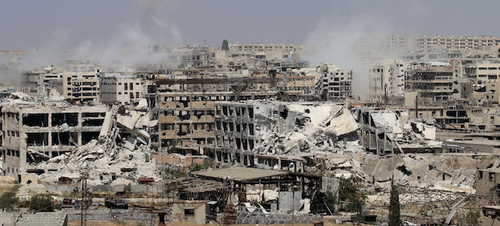
If broader UN sanctions are indeed reimposed on Iran via the JCPOA snapback provisions 30 days from last week’s joint notification, Iran’s rulers will be under pressure to respond. In July, Iran’s deputy foreign minister threatened that Iran may do so by withdrawing from the NPT, which would mean an end to ongoing supervision of the Iranian nuclear program by the International Atomic Energy Agency (IAEA).
Iran’s relationship with the IAEA is already badly strained. “Iran expelled IAEA inspectors in the wake of the US-Israeli war in response to the watchdog’s role in providing a pretext for the initial Israeli attack and for its failure to condemn the bombing of Iranian nuclear facilities,” explained Antiwar.com’s Dave DeCamp. Iran also says it suspects Israel obtained information from the IAEA that enabled the assassinations of more than a dozen Iranian scientists in June.
Iran allowed a team of inspectors to return last week, but it remains to be seen how much access they’ll be given. Among the largest questions looming over Iran’s bombed nuclear program: Where is the stockpile of 60%-enriched uranium that had been held deep under a mountain at Fordow? That enrichment facility was hammered by US bunker-buster bombs on June 22, but some reports have suggested Iran preemptively moved the uranium to another location before the Trump-ordered strike.
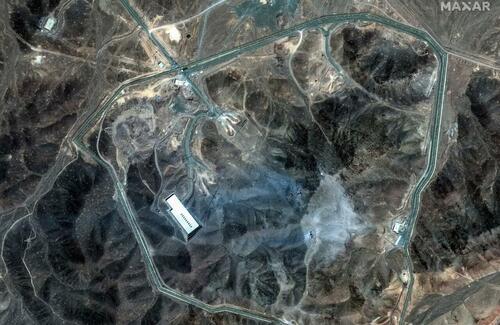
With both Israel and the United States threatening renewed warfare if Iran makes good on its promise to continue enriching uranium, Tehran will be justifiably reluctant to disclose the fate of its 60%-enriched uranium, or to give full access to its nuclear facilities, including those hit by Israel and the United States in June. After all, full transparency would certainly be exploited by military planners in Washington and Tel Aviv.
It’s a no-win situation for Iran. A withdrawal from the NPT will be portrayed by Israel and its Western allies as proof that Iran is building a nuclear bomb. The same narrative will be promoted if Iran continues to allow inspections, but fails to grant every request for access to sites around the country. It’s easy to purposefully trigger refusals — for example, by asking for access to sites that aren’t sincerely suspected of harboring nuclear assets, but are nonetheless sensitive from an Iranian national security standpoint.
Either way, Israel and its collaborators in Western governments can create a pretext for military intervention. Ironically, Israel may be pushing Iran into a corner that prompts Ayatollah Khamenei to withdraw his religious edict forbidding the development of nuclear weapons, turning a long-false accusation into reality.
Short of an all-out war or regime-change campaign, Israel — at the least — wants to impose a new, violent reality on Iran, says Trita Parsi, executive director of the Quincy Institute for Responsible Statecraft. “What the Israelis wanted to achieve [in June], short of decapitation, was to make sure that they turn Iran into the next Lebanon or Syria, a country that Israel can bomb at will without American involvement and with complete impunity,” said Parsi on a recent appearance on the Scott Horton Show. “It’s part of the larger security strategy of the Israelis, which is security through complete military hegemony and domination. This is why they are very inclined to start a war again, and they want to do so before the political window in Washington closes.”
To preclude a new era in which Iran is routinely bombed by Israel, Parsi thinks Tehran will take a far more aggressive approach to retaliation than it did in June. “The Iranians will not show any of the restraint they showed in the last 12-day war. It’s very clear they were [planning] for a long confrontation, and as a result, they were not consuming everything they had at an early or a fast pace. But for the next war, they’re probably going to go all-in right away to completely dispel any notion in Israel that they can turn Iran into the next Syria.” Such a massive retaliation would seemingly amplify the risk of major US involvement.
CRAZY FOOTAGE 🔴
Video shows an Iranian hypersonic missile slamming down with lightning-like force. pic.twitter.com/YweBMOr0kH
— Open Source Intel (@Osint613) June 16, 2025
Iran’s likely approach to the next round of warfare may be driving a sense of urgency in Israel to strike soon, given both countries are racing to replenish their arsenals. It’s not clear who’s best-positioned for that competition and the next exchange of fire.
Israel rapidly neutralized Iran’s air defenses in June, but, as the war progressed, Iran had increasing success of its own, bypassing Israeli air defenses and achieving some spectacular hypersonic ballistic-missile strikes on targets around the country. On the other hand, Iran’s offensive missile arsenal was depleted by use and degraded by Israeli attacks, and its missile and fuel production facilities were also hit.
IDF air defenses reportedly ran low on ammunition too, and the US arsenal was also weakened. In the most egregious example, to defend Israel from the consequences of its aggression, the US military burned through a quarter of its global inventory of high-end, THAAD missile interceptors, firing 150 of them at a staggering cost of some $2 billion. At the pace Lockheed Martin produces them, it will take more than a year to restore the THAAD inventory.
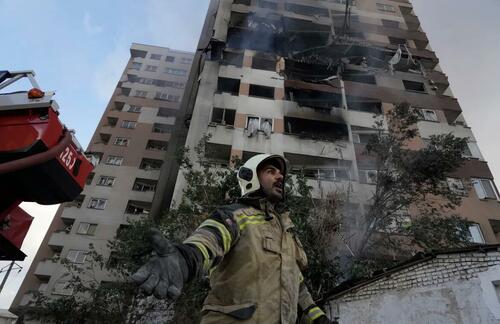
In addition to the ambiguous, multi-variable dynamics of the arms race, Israel’s eagerness to start the next round of warfare could also be driven by the shelf-life of whatever assets the Mossad still has inside Iran. Such assets played a major role in Israel’s surprise attack — reportedly deploying long-concealed drones, destroying anti-aircraft batteries, and facilitating the assassination of scientists and military commanders. Since the war, Iran has been sweeping the country for remaining Israeli assets, and rounding up suspected spies.
As Parsi indicated, US politics must also figure in Israel’s calculus. Americans’ support of Israel has been cratering as the IDF campaign in Gaza continues to produce images of suffering on an enormous scale, alongside a never-ending stream of credible testimonies about Israeli atrocities against civilians. The collapse in pro-Israel sentiment extends to what has long been the foremost cornerstone of Israeli support — the Republican Party. A spring Pew poll found that 50% of Republicans under 50 now have an unfavorable view of the Zionist state, and Trump’s decision to join Israel’s war on Iran in June sparked an uproar from his America-First base, led by influential figures like Steve Bannon.
Meanwhile, legislators from both sides of the aisle have been enduring disruptions at summer-recess town halls, with angry constituents condemning them for failing to block ongoing US facilitation of Israeli war crimes in Gaza. Add it all up, and Israel would likely want to make its next attempt at entangling Trump in a major war well before he’s highly sensitized to the potential impact on the 2025 midterms. Taking the longer view, Prime Minister Benjamin Netanyahu and others must be contemplating the possibility that the long era of unwavering US support of Israel could be at the beginning of its end — incentivizing them to cash in on every American dollar, missile, UN veto and misguided military intervention they can before the party’s over.
In the meantime, Israel and its collaborators throughout the West will continue doing all they can grease the skids for the next war, which includes propaganda campaigns to cultivate fear and loathing of Iran. Decades into that undertaking, the anti-Iran material is dominated by tired old lines that just don’t hit like they used to, like warnings that Iran is “months away” from having a nuclear weapon — warnings we’ve been subjected to for decades, despite contradictory conclusions of the US intelligence community.
After launching his war on Iran in June, Netanyahu dusted off a propaganda line from the run-up to the 2003 Iraq invasion, claiming Israeli intelligence had just learned that, if Iran obtained nuclear weapons, it would hand them over to non-state proxies to inflict “nuclear terrorism on global scale.” The fact that Netanyahu quickly dropped that far-fetched claim from his wartime oratory speaks volumes.
Speaking of things that sound made up, last week Australian Prime Minister Anthony Albanese said his security agencies determined Iran had directed arson attacks on a Jewish business and a synagogue in Australia in 2024. Western reporters dutifully quoted the claim, without adding their newfangled “without evidence” modifier they selectively apply to statements made by politicians they revile. Iran’s supposed motive? “To undermine social cohesion and sow discord in our community,” said Albanese with a straight face. Embedding a second dubious claim inside the first, Australia says its intelligence community reached its conclusion about Iranian government involvement in the arsons on its own.
After leveling the accusation, Australia expelled Iran’s ambassador — the first time it did so to any country’s ambassador since World War II — and designated Iran’s Islamic Revolutionary Guard Corps as a terrorist group. Aside from serving the broader propaganda campaign, the claim and related moves carried potential political benefits for Albanese — countering Netanyahu’s recent accusation that Albanese had failed to take “decisive action” against an “alarming rise of antisemitism in Australia.” Netanyahu even went so far as to assign the Australian prime minister a Sept 23, Rosh Hashanah deadline to “replace weakness with action, appeasement with resolve.”
You can expect many more accusations to be leveled against Iran in the coming days and weeks. Some may be true, but allow me to pass on a useful reminder from Aussie Caitlin Johnstone. With each new claim, bear in mind Hitchens’ Razor: “What can be asserted without evidence can also be dismissed without evidence.”
STARK REALITIES: Invigoratingly Unorthodox Perspectives For Intellectually Honest Readers
Sign up and join thousands of free subscribers who benefit from monthly, ad-free insights
* * *
Views expressed in this article are opinions of the author and do not necessarily reflect the views of ZeroHedge
Tyler Durden
Mon, 09/01/2025 – 13:50ZeroHedge NewsRead More


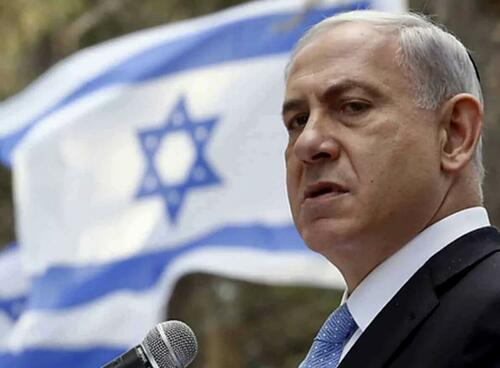



 R1
R1
 T1
T1


